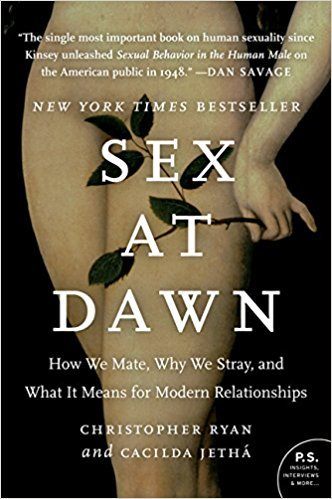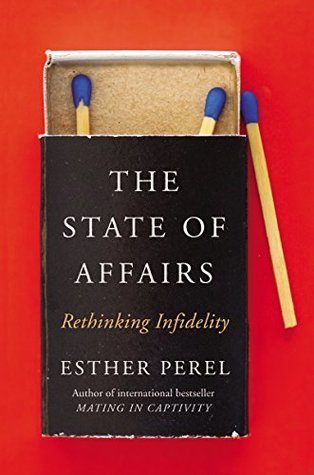The question that most people ask, when they learn that a person is exploring a non-monogamous or polyamorous relationship framework, is: don’t you get jealous? And one of the most common reasons given for not wanting to explore a similar set-up themselves is that they fear feeling jealous or think they’re already ‘a jealous person’.
I’m going to explore the idea of jealousy through a concept that’s little known outside non-monogamous circles: the one-penis policy. I will then talk about my own recent and current experiences of jealousy and then go on to talk about rules, which are often put in place with the aim of avoiding feelings such as this, and yet which can be unhelpful as well as helpful.
The one-penis policy is a very much debated concept in non-monogamous circles. It’s the idea that a woman is only ‘allowed’ to have one penis in her romantic and sexual life. This is an issue that is fairly common in the swinging community (‘I can sleep with you but my wife/girlfriend can only have sex with me’) as well as within the romantically open community. It is often a starting point for any exploration of sexual openness, as people navigate and test their feelings about experiences. It’s quite widely discussed and, I would like to think, reducing in its prevalence as people increasingly accept women’s independent sexual agency.
Recently, I have had to process some difficult feelings of my own about my partner’s multiple dates with women, as well as witness, at the same time, the difficulties he was having in processing my own dates with other men. And what struck me about all this was that, by dating men who only date women (or by dating women who are bi or lesbian), women are obliged to undertake the work of dealing with jealousy sooner. The very nature of being female and dating a heterosexual or bisexual man means that you have to confront the reality of him being with other women much more often than he may have to deal with your being with a man.
I only had one other regular male sexual partner in 2017 and even that relationship was only a brief one while my partner, Andrea, was dating another woman and also seeing other women more casually (some of whom were possibly about to become more than casual).
This was a lot for me to process.
His new girlfriend was a lot younger, objectively prettier, certainly wealthier and definitely better formally educated than me and yes, I DID feel insecure. I did experience jealousy. Maybe even a lot of jealousy. It’s a kind of poly worst-nightmare scenario when the ‘new’ person ticks so many more socially valued and validated boxes: younger, prettier, richer, cleverer. I felt that fear and pain. And then I saw that I had two choices: either get lost in a swamp of green-tinged despair, or address what it was that I was fearing.
By sitting quietly with and also discussing my feelings, rather than pushing them away, I slowly came to understand, in a very deep and meaningful way, that I can only ever be me. I may be able to earn more or learn more, but I cannot be twenty-three again, and neither can I be full-breasted and tall. That is not me. She was not me. Processing those feelings helped me love who and how I was, and also helped me to identify areas where I did want to make changes, in myself as well as in my relationship. Andrea’s dating someone else brought us closer together as we saw the value of what we shared; but we also had to work harder at being us, rather than taking it for granted. This brought learning, and, ultimately, a closeness that now I can only thank that other relationship for.
I know that some tall girls envy shorter ones; that smart, wealthy career women can envy the bohemian and the arty. But one cannot be two opposing things at the same time. We cannot live every life or be every person. It is as essential to learn to love and accept what you cannot change as it is to find the courage to change the things that you can. Serenity comes from this, regardless of the challenges you face.
As I observed Andrea’s girlfriend putting rules in place about how he could interact with other women – rules that were meant to be temporary but showed no sign of being taken down – I was prompted to think about the issue of rules in general and what purpose they serve.
Rules can come from a place of fear or they can come from a place of exploration and a will to grow
I absolutely understand that we need guidelines and boundaries in place as we begin to explore non-monogamy, but rules can come from two places: a place of growth and hope for growth; or a place of fear and a fear of feeling that fear.
In non-monogamy I see rules as being like training wheels – a useful support until we gradually get more confident and can then travel without them. Of course it might be the case that all parties are content with where they are right now. But even then one needs to be aware that things might change and evolve.
This process can be taken at your own pace, but it does need to be a process; it needs to contain some forward movement. There does need to be progress made. Even if it is slow, the pace is not as important as the general sense that one is moving towards a time when one can feel easier about the things that used to make us feel bad.
Rules that come from a place of growth enable you to feel safe, and help you to use that sense of safety and security to begin to explore further if you wish. To step outside your comfort zone and to broaden the possibilities of your life experiences. Or not. To stay where you are is also fine, as long as you are sure that the choice is being made based on genuine contentment rather than a fear of something else.
‘Life is about being defeated by greater and greater things’ – Rilke
Developing your relationship with yourself, and your sense of self, is about moving to a place of increasing comfort with fear, change and loss. It is about learning to feel less afraid of fear, less avoidant of life and difficult feelings, more able to ‘move towards’, less fearful.
We avoid difficult feelings because they feel difficult and yet avoiding them always makes them worse
Doing the work of feeling our feelings can help us move towards the relationship framework that we want for ourselves. As a Spanish proverb says: take what you want and pay for it. Rules and ‘policies’ are, all too often, a way of trying to not pay for the life you are enjoying.
We have to do this work because, with too large and too rigid a set of rules in place, with fences erected, we are kept trapped by fear. I see this in the men who insist on a one-penis policy: the rule does not remove the fear of change, the fear of ‘other’ or ‘better’, the fear of loss. It just pushes it down, and, pushed down, all it does is take root and get bigger.
We have to do this work because the alternative is a life spent knowing, deep down, that there are things that frighten you and never being brave enough to take a look. That is a life spent inside a small place: a smaller place than you deserve.
For me, the big learning around jealousy and rules in 2017 was that it is not rules that help but learning to truly see myself and my relationships as they are. And, through awareness and developing my trust and sense of value in myself, reducing the comparing of myself with others. I had to learn to notice what I was doing, and to let go of the innate and instinctual mechanism of the mind that instantaneously, and almost constantly, uses ‘other’ to benchmark and consider the self.
We need to learn to see the self as unique and whole as well as a growing and developing thing and not as something that always comes up short when compared to something else. Yes, others may have thinner thighs, a higher salary, be more creative or taller or cuter or shorter or whatever than you, but they are not YOU. This is where we have to see and trust that we are enough as we are. That we can only change certain things and not always be the objectively ‘better’. You are, to quote some Zen wisdom, perfect as you are and there is always room for improvement.
How to be with difficult feelings
So, let’s try it. Let us feel a difficult feeling together.
Imagine a scenario you would dislike, something that would spark a challenging feeling: start small, with something that will feel bad but not leave you in pieces.
Get comfortable. Close your eyes.
Imagine the scenario.
Feel how it would make you feel.
Feel it.
Breathe.
Keep feeling it.
Keep breathing .
Look at it: what is its texture, its sound, its taste?
Feel it through your body: where is it? where does it sit? Is it static or fluid?
Now open your eyes and feel through your body and notice what how you feel now.
Breathe.
When you are ready, make a note of how you feel. Write it or draw it, make notes or journal away – do what works best.




















